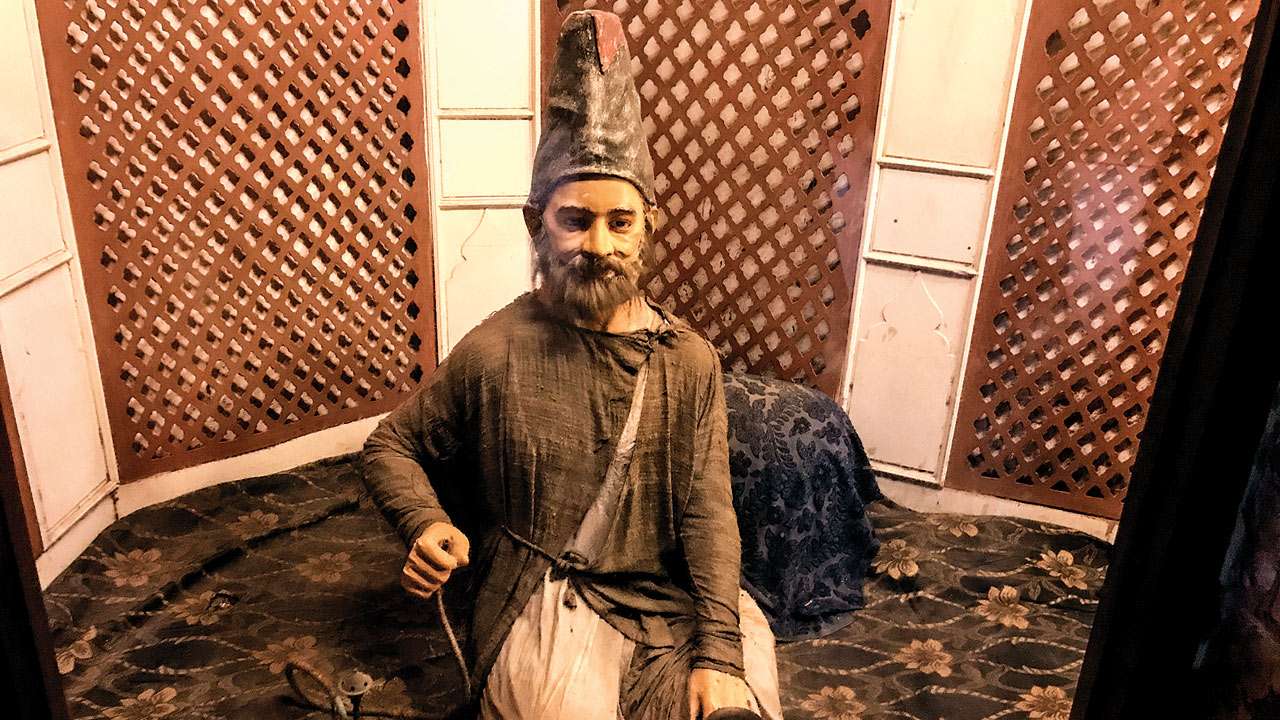
February 15, 2019, marked the 150th death anniversary of Mirza Asad Ullah Khan Ghalib, popularly known as Mirza Ghalib or just as Ghalib. This is also the 150th year of the birth of Mahatma Gandhi.
It is time to recall how the death centenary of the greatest, the most influential and the most popular of Urdu poets and one of the tallest literary figures of world literature was observed in 1969, not only in India and the sub-continent but also all over the world, especially the countries with a Persian connection.
The Ghalib Academy and the Aiwan-e- Ghalib were established in Delhi. Several Universities in India and abroad established Ghalib Chairs. Seminars were organised, commemorative Mushairas were held. A large number of books on Ghalib, his times, his poetry and prose, his outlook to life; the impact of Ghalib on the writing of Urdu/Hindi prose, a large number of editions of his anthology and translations of his poetry in different languages were published. Commemorative postage stamps on Ghalib were brought out. HMV, probably the only record company that existed at that time brought out Vinyl records of Ghazals of Ghalib, sung by eminent vocalists.
Why did we celebrate Ghalib with such fervour has something to do with what Ghalib represented. Despite his penchant for the trappings of status and of feudal grandeur, intellectually he was a modernist, perhaps the first modernist in his time and in celebrating Ghalib we were also celebrating modernity.
Ghalib rejoiced in the ease of communication that the newly introduced postal system provided, he purged prose, especially correspondence of its highly formal stylisations and converted it into a more practical, matter of fact, conversation, unleashing a virtual revolution in the world of prose writing. Munshi Shiv Narain Prasad ‘Aaraam’ one of his disciples was responsible for putting together the first edition of Ghalib’s letters. Published in 1868, just four months before Ghalib’s death, the collection was named Ood-e-Hindi (the fragrance of Hindi) prose written in the Persian script was then known as Hindi.
In a letter to one of his disciples Ghalib talks of the imminent demise of letter writing with the advent of the Telegraph, it did not happen then but, the internet has done it. In a Qaseeda, panegyric, he searches for a form beyond the Ghazal because, he finds that the ideas that he seeks to articulate cannot be expressed within the metered and formalised confines of the Ghazal. It has been argued and countered, that he was anticipating the Nazm.The Nazm was something that was to flourish in the decades after his death and some of the greatest poets who carried on his tradition of poetry of substance like Hali, Iqbal and Faiz and others were to become its propagators.
One can disagree with his reaction to the request by, the founder of the Mohammadan Anglo Oriental College Syed Ahmad Khan, to write the preface of his book on the Historical Remains of Delhi. Ghalib is reported to have asked Syed Ahmad Khan to stop dragging the past and to look at the new world being born. One cannot, however, ignore the fact that Ghalib could foresee that the world in which he had grown and loved was changing forever.
He does not mope around, he celebrates the possibility of the new.
Ghalib seems to have equally blamed the rebels and the soldiers of the East India Company for the mayhem in Delhi but he grieves for all those who died and in that he comes up as someone who abhors violence and bloodshed.
In 1969, Ghalib was the flavour of the season, so much so that Sahir Ludhyanvi was to protest “Why is Ghalib being celebrated with such pomp when Urdu the language of his expression is being smothered in the land of his birth’.
50 years later in 2019, Ghalib is almost forgotten and this despite the fact that there is apparently a great upsurge in the popularity of Urdu. Rekhta a website dedicated to the promotion of Urdu verse, continues to grow in an unprecedented manner. The Rekhta Festival attracts tens of thousands of lovers of the Urdu language to its three day festival in Delhi. The ever-growing popularity of the Ghazal, the Qawwali and the Mushaira - forms of Urdu expression, accessible to those not familiar with the script, is evidence that the language has a lot of takers, especially among the youth. Yet Urdu continues to suffer neglect at the hands of official channels.
1969 was the death centenary of Ghalib and the birth centenary of Bapu. Fifty years later, the former is almost totally forgotten and the latter has been reduced to a pair of glasses. The forgetting of one and the marginalisation of another are no mere co-incidences; these two developments are markers of our times, a slide back from modernity into regressive inanities.
The author is a historian